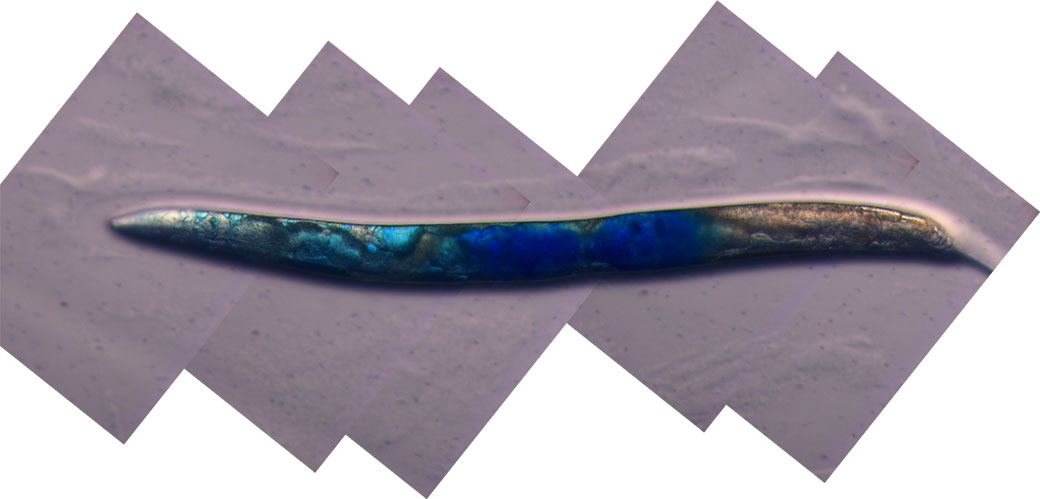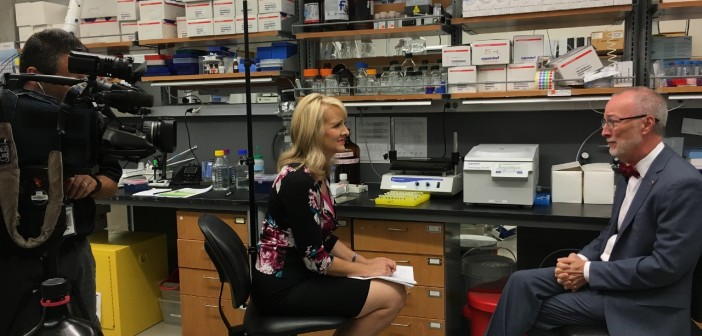These days, we’re fighting a war on sugar, and it might seem like we’re winning. Low-calorie, artificial sweeteners are added to 15% of the volume of foods and beverages purchased in the United States.1 And they’re in all sorts of products labeled “light” or “no added sugar,” from soda to yogurt to protein bars. By replacing sugar, they’re meant to help consumers take in fewer calories. But epidemiological data suggest they may do the opposite, elevating the risk of health problems like type 2 diabetes and cardiovascular disease.
“Artificial sweeteners were approved for consumption by the U.S. Food and Drug Administration because they’re non-toxic and don’t cause cancer at the recommended daily intake,” said George Kyriazis, PhD, assistant professor in the Integrative Metabolism Program, who recently presented evidence of their possible health risks during a public lecture at the University of Central Florida. “But we’re only now figuring out whether and how they may affect metabolism.”
The potential impact of artificial sweeteners, including sucralose, aspartame, saccharin and acesulfame potassium, on American health could be huge. In large studies following the same group of people over 10-20 years, those who drank at least one artificially sweetened beverage every day were 40% to 60% more likely to develop type 2 diabetes or suffer a heart attack or stroke as those who didn’t.2 The jump in relative risk is roughly the same as that with one or more regular sugary sodas.
Why is consumption of low-calorie sweeteners associated with all these problems if they’re not metabolized by our cells? Kyriazis thinks a potential mechanism lies in their ability to activate sweet taste receptors, the focus of his research. Sweet taste receptors, despite their name, are actually found in many organs, including the intestine and pancreas, where they regulate sugar uptake and secretion of sugar-regulating hormones, respectively.
Kyriazis has shown that sweet taste receptors are essential for artificial sweeteners to wreak havoc on metabolism. For example, adding saccharin to the water of normal mice for a few months causes them to become pre-diabetic, but mice lacking sweet taste receptors are protected from this condition. Whether this is also true in humans is unknown, but Kyriazis is leading a proof-of-concept clinical study at the Translational Research Institute for Metabolism and Diabetes at Florida Hospital that will begin recruiting soon.
“We will give healthy participants an FDA-approved food additive that inhibits sweet taste receptors and see if it can prevent any of the anticipated negative metabolic effects of saccharin consumption,” Kyriazis explained. “These studies could further our understanding of the role of sweet taste receptors in metabolic disease, which will help determine their validity as a target for future drug development.”
References:
- Ng SW, Slining MM, Popkin BM. Use of caloric and noncaloric sweeteners in US consumer packaged foods, 2005–2009. J Acad Nutr Diet 2012.
- Swithers SE. Artificial sweeteners produce the counterintuitive effect of inducing metabolic derangements. Trends Endocrinol Metab 2013. Table 1, refs 25, 26, 30.



